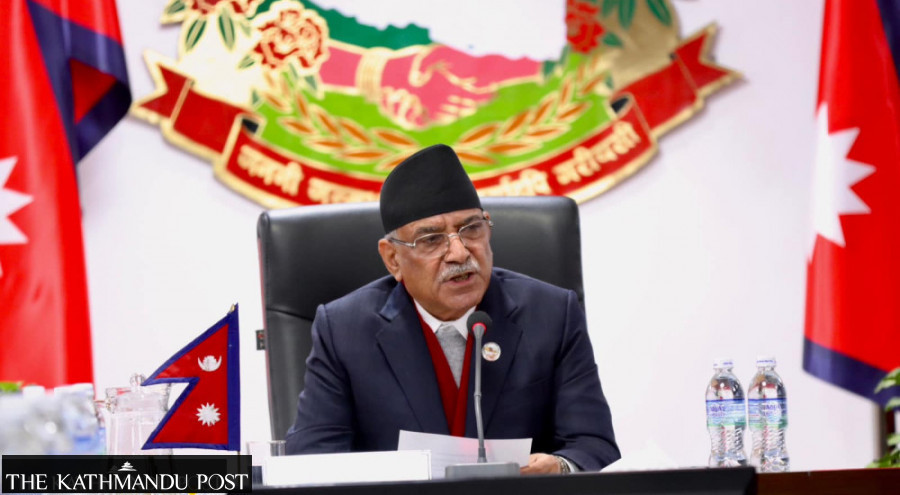National
Prime Minister Dahal says he favours publicising Lal Commission report
Promises to call a meeting of the ruling alliance to decide the matter.
Post Report
Prime Minister Pushpa Kamal Dahal has reiterated that he was positive about making public the report of the Lal Commission, a panel formed to study the atrocities in the Madhesh protests in the run-up to the promulgation of the constitution in 2015.
Madhesh-based parties have long been calling to make the report public, which they believe has a fair account of the rights violations by the state and protesters. However, successive governments, despite reiterated commitments, have not acted.
On Thursday, Dahal, in a meeting with the Nagarik Unmukti Party chair Resham Chaudhary, said he always wanted to make the report public. “The prime minister was very positive about publicising the Lal Commission report. He has assured me of holding a meeting of the ruling parties very soon for their consent,” Chaudhary told the Post. “I believe the report will soon be public.”
The Chaudhary-led party is a part of the ruling alliance and Ranjeeta Shrestha Chaudhary of the party is minister for land management, cooperatives and poverty alleviation in the Dahal government.
The commission led by former Supreme Court Justice Girish Chandra Lal was formed for a detailed investigation into the months-long protests in the run-up to and following the promulgation of the constitution in September, 2015. It was constituted in February 2016 when ledthe government for the second time. The report was submitted to then-prime minister Sher Bahadur Deuba on December 16, 2017.
The panel, which had advocate Sujan Lopchan, former Nepal Police AIG Navaraj Dhakal and home ministry joint-secretary Narayan Prasad Sharma Duwadi as its members, had received 3,264 complaints.
Although successive governments on different occasions made public commitments to releasing the report, it has been gathering dust. Under pressure from Madhes-based parties, the House of Representatives in March 2019 and in the following August had instructed the government to publish the report, but in vain.
According to the report, 66 people—including 10 police, an 18-month-old child, four-year old Samman Patel and 15-year-old Nitu Yadav—were killed during the Madhesh movement. Of them, 62, including the police personnel were declared martyrs, while four had not been conferred the status. The commission visited 18 districts for investigations.
In Tikapur of Kailali, seven policemen and an 18-month-old child were brutally killed by agitators in August 2015. The report is said to have recommended that the government strengthen the mechanism to control riots and agitations.
Amid the government’s reluctance to release the report, a group of victims demanded the report using the right to information law. But the authorities made various excuses and refused to release the report.
Dahal himself, on several occasions, has claimed that he stands for making the report public. Addressing a meeting of the House of Representatives in May last year, he said there were some legal complications for doing so.
The Kailali District Court in March 2019 convicted Chaudhary of masterminding the 2015 killings and the decision was upheld also by the Dipayal High Court in December 2020. On May 16 last year, the Supreme Court also upheld the Dipayal High Court’s decision to sentence Chaudhary to life imprisonment. In what is known as the Tikapur incident, eight people including a high-ranking police official and a toddler were killed during a violent anti-government protest in Tikapur of Kailali.
Ten days after the apex court verdict, his remaining sentencing was commuted by President Ramchandra Paudel on the eve of Republic Day. The controversial commutation has been challenged in the apex court.
Chaudhary and his supporters claim that he was not in Tikapur when the incident happened and he was framed by security forces. His party hopes that the Lal Commission report will not implicate him in the deadly incident.




 9.83°C Kathmandu
9.83°C Kathmandu













